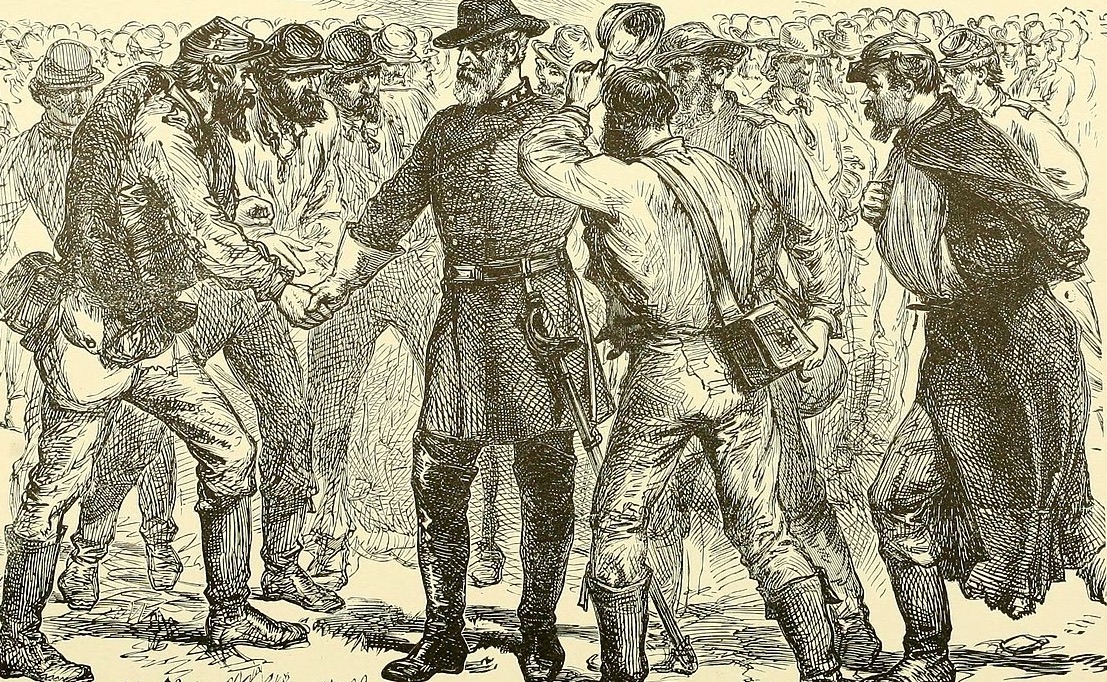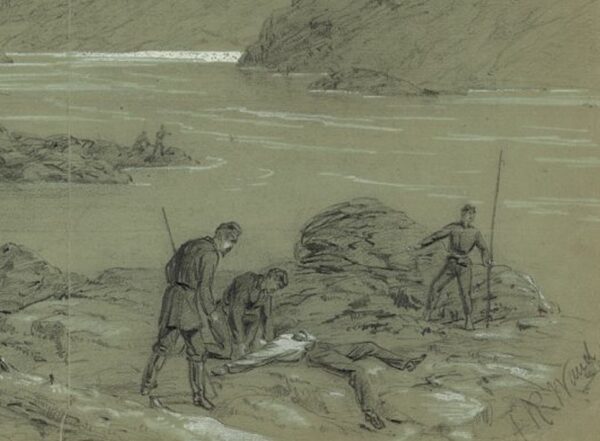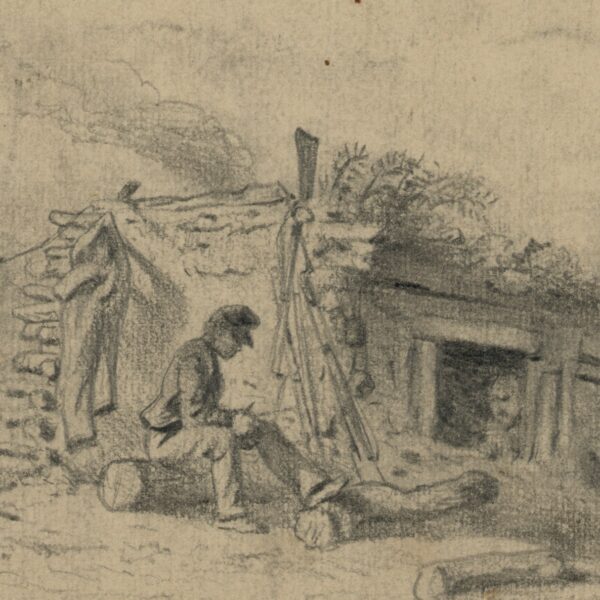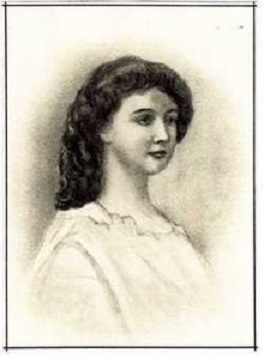
Robert E. Lee bids the men of the Army of Northern Virginia farewell at war’s end.
On the night of April 9, 1865, only hours after surrendering to Ulysses S. Grant at Appomattox Court House, Robert E. Lee sat around a fire with a group of his officers outside his tent. One of the men with Lee that evening was his military secretary, Colonel Charles Marshall, who later recalled the scene. “[A]fter some conversation about the army, and the events of the day, in which his feelings toward his men were strongly expressed, he told me to prepare an order to the troops,” Marshall wrote. The following day it rained, and with “many persons … coming and going,” the colonel was “unable to write without interruption until about 10 o’clock.” After learning that the order had not been prepared, the general directed Marshall “to get into his ambulance, which stood near his tent, and placed an orderly to prevent any one from approaching me.” After Marshall completed a draft, he submitted it to Lee, who removed one paragraph and “made one or two verbal changes.” Copies of the final version, issued as General Order No. 9, were soon circulated to the army’s corps commanders and staff. It read as follows:
Headquarters, Army of Northern Virginia, 10th April 1865.
General Order No. 9
After four years of arduous service marked by unsurpassed courage and fortitude, the Army of Northern Virginia has been compelled to yield to overwhelming numbers and resources.
I need not tell the survivors of so many hard fought battles, who have remained steadfast to the last, that I have consented to the result from no distrust of them.
But feeling that valour and devotion could accomplish nothing that could compensate for the loss that must have attended the continuance of the contest, I have determined to avoid the useless sacrifice of those whose past services have endeared them to their countrymen.
By the terms of the agreement, officers and men can return to their homes and remain until exchanged. You will take with you the satisfaction that proceeds from the consciousness of duty faithfully performed, and I earnestly pray that a merciful God will extend to you his blessing and protection.
With an unceasing admiration of your constancy and devotion to your Country, and a grateful remembrance of your kind and generous consideration for myself, I bid you an affectionate farewell.
— R. E. Lee, General
This article originally appeared in the Monitor’s special issue Grant vs Lee.



